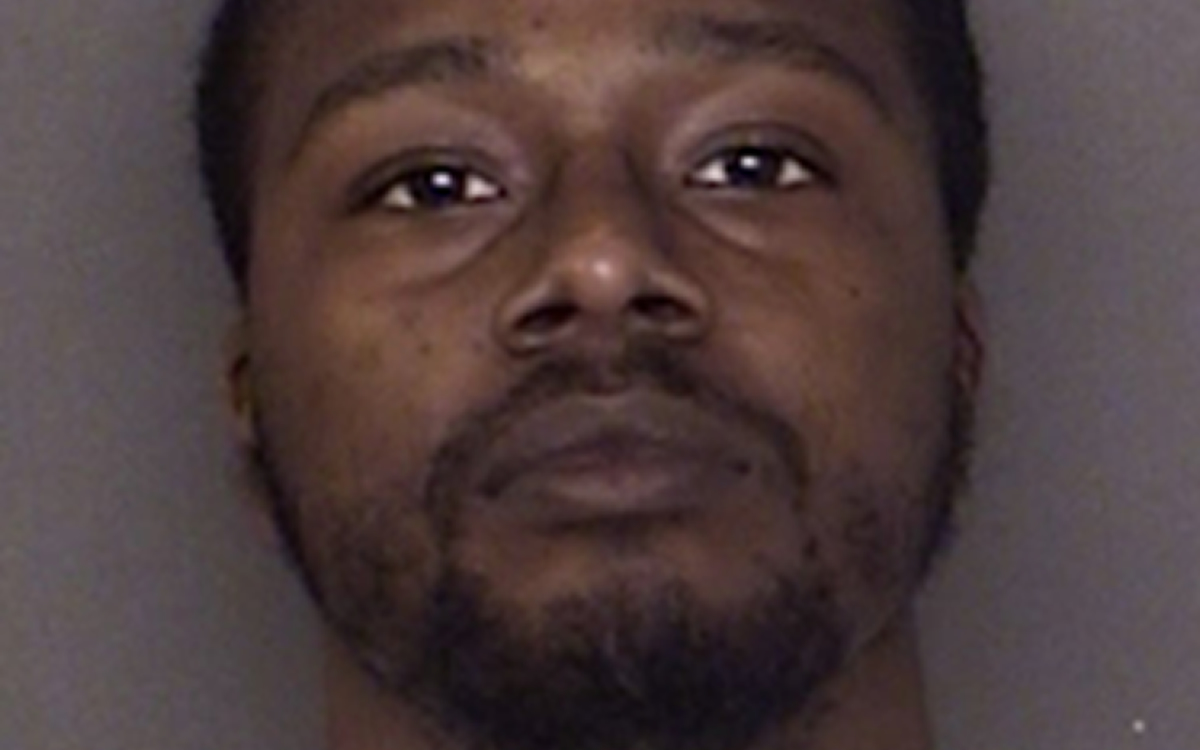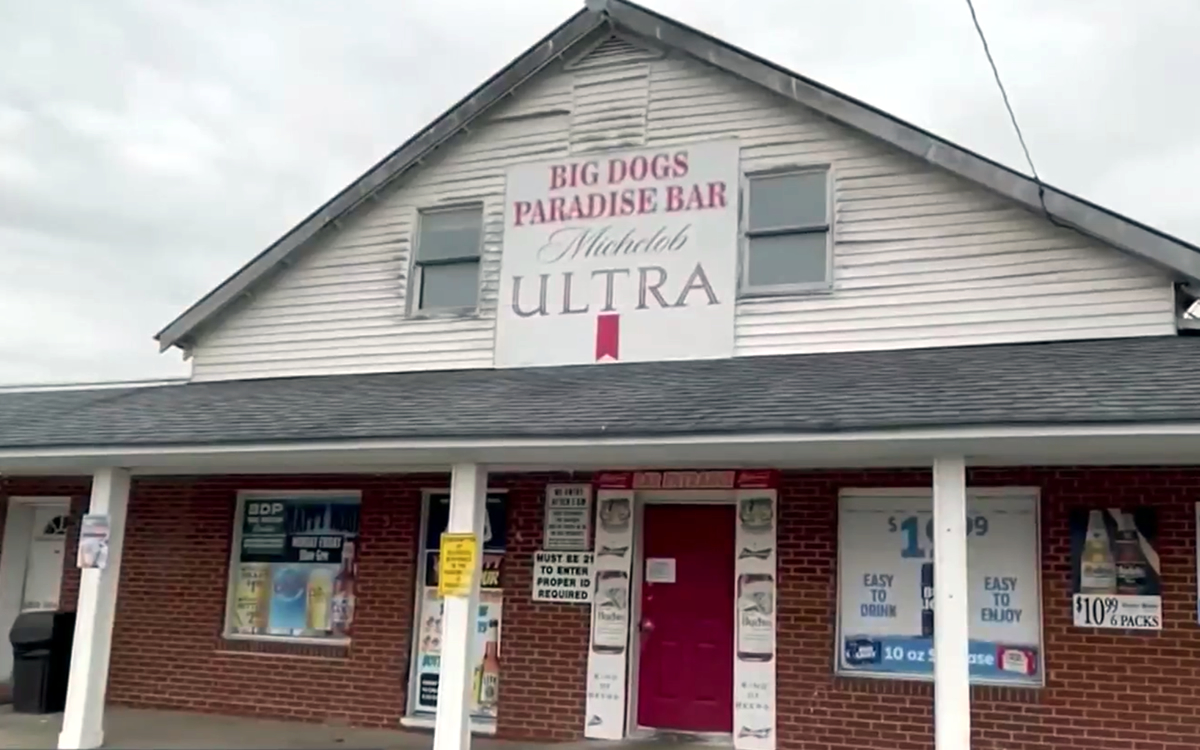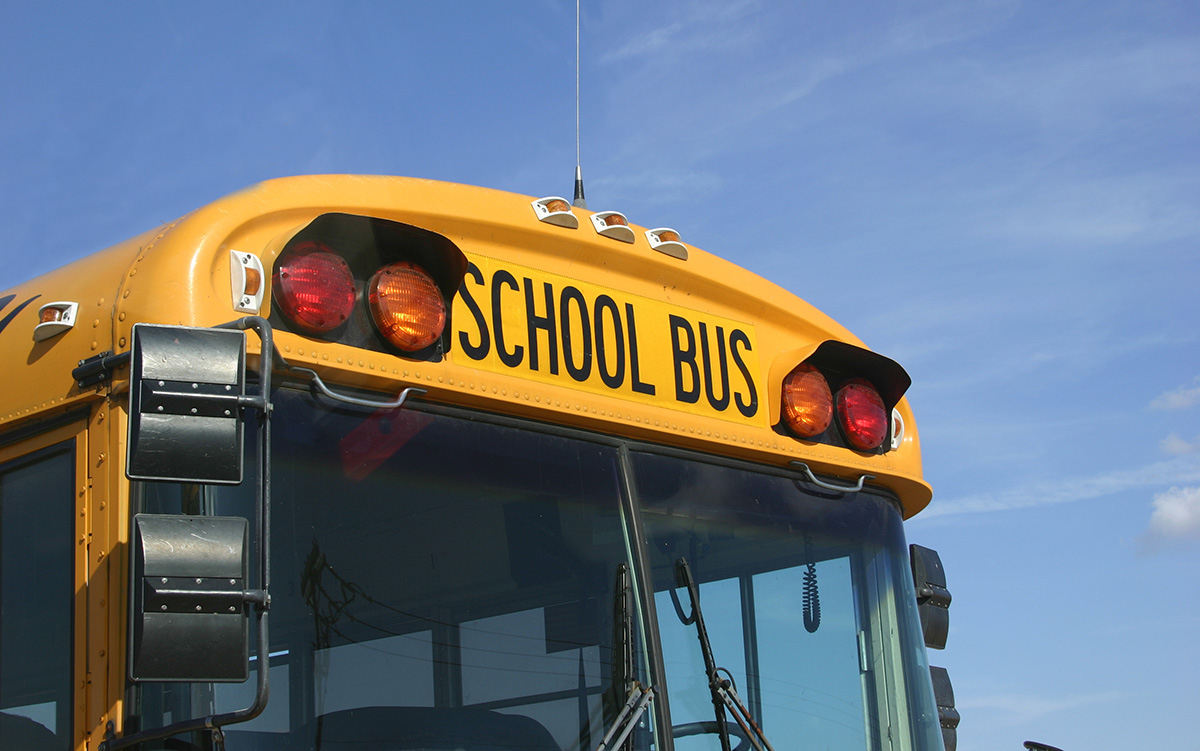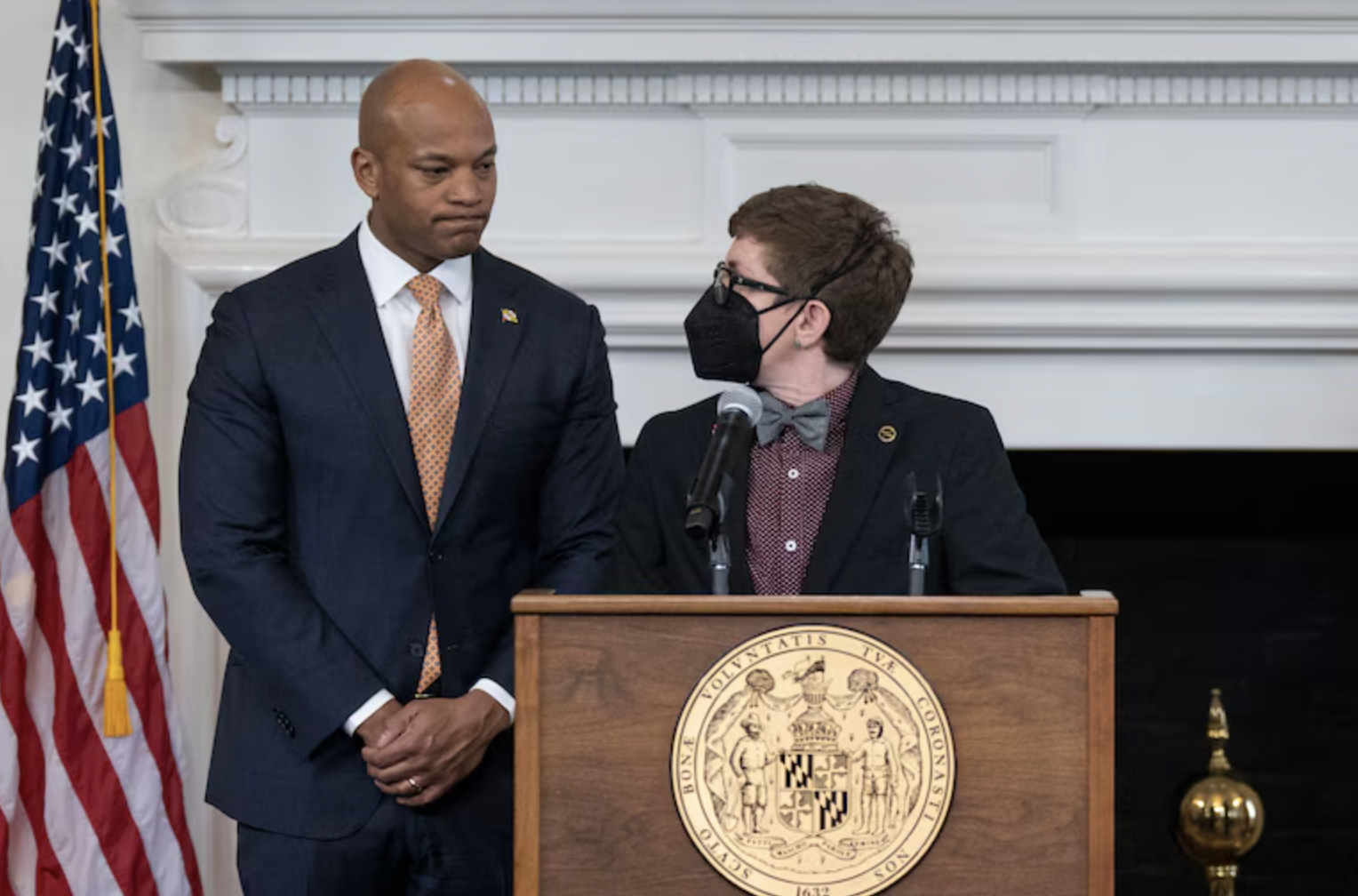Maryland
D.C. man charged in murder of trans teen outside Maryland bar
Victim’s family, police disagree over whether incident was hate crime

The St. Mary’s County, Md., Sheriff’s Office announced on Wednesday that it has charged a 29-year-old D.C. man with the March 24 shooting death of an 18-year-old transgender woman outside a bar in Mechanicsville, Md.
In an earlier announcement last week, the St. Mary’s Sheriff’s Office said Tasiyah Woodland of Lexington Park, Md., was found shot to death shortly after 1 a.m. in a parking lot outside the Big Dogs in Paradise bar and grill after “some type of confrontation” occurred.
The earlier announcement said investigators did not believe Woodland had been targeted for the murder because of her gender identity, although Woodland’s family members disputed that claim, saying they believed the murder was a hate crime.
In its announcement on Wednesday, March 29, the Sheriff’s Office said its Criminal Investigations Division on March 24 – the day of the murder – identified District resident Darryl Carlton Parks Jr. as a suspect in the case. Later that same day investigators obtained an arrest warrant for Parks, the announcement says.
On Tuesday, March 28, according to the latest announcement, the Sheriff’s investigators along with the assistance of the D.C. police Homicide Unit, located and apprehended Parks on the arrest warrant. He is being held in D.C. while he awaits extradition to St. Mary’s County, the announcement says.
It says Parks has been charged with First-Degree Murder, Second-Degree Murder, Firearm Use/Felony-Violent Crime, two counts of Reckless Endangerment from Car, and Illegal Possession of a Regulated Firearm.
The latest announcement does not disclose whether Sheriff’s Office investigators have determined a motive for the 18-year-old trans woman’s murder.
Woodland’s sister, Ty’aliyah Woodland, told News 4 Washington that she and members of her family believe the killing was a hate crime based, in part, on the fact that Woodland had been subjected to “hate” in the recent past because of her gender identity. Ty’aliyah Woodland told News 4 Washington that her sister was an outspoken person who sometimes got others upset.
“She was one of a kind. She had no filter. She told you what it was and what it wasn’t, and nobody like that,” Ty’aliyah Woodland told the TV news station. “I mean, she was the true definition of living life to the fullest.”
Sheriff’s Office spokesperson Jason Babcock told the Washington Blade on Wednesday that there were multiple witnesses who informed investigators that Tasiyah Woodland had been inside the Big Dogs in Paradise bar and reported a confrontation took place after Woodland left the bar and entered the parking lot.
“When she came back out there was some kind of confrontation between the suspect and the victim that led to the shooting,” Babcock said. “But they were not in a relationship, and the investigation has determined that the victim’s gender identity was not a factor in the shooting,” he said.
Babcock added that investigators determined the shooting took place while suspect Park was inside his own car, leading to one of the charges being Reckless Endangerment from Car.
“The Sheriff’s Office thanks the community for its assistance in this investigation and urges anyone with additional information to contact Deputy David Lawrence at 301-475-4200, ext. 78130,” the latest statement released by the office says.
In its earlier statement prior to the announcement this week of an arrest in the case, the Sheriff’s Office said its investigators had reached out to the victim’s family and to the LGBTQ community while its investigation was still under way.
It said the investigators had been “in regular contact” with members of Woodland’s family to offer support and updates on the investigation.
“The Sheriff’s Office has also been in contact with members of PFLAG Southern Maryland and the LGBTQ+ community to address concerns of personal and public safety,” the earlier statement said. “At this time, it does not appear that Woodland was targeted because of her gender identity,” it said.
PFLAG, or Parents and Friends of Lesbians and Gays, is a national organization with chapters in states and cities across the country.
Under Maryland law, people under the legal drinking age of 21 are allowed to patronize bars and other places that serve alcohol if they do not consume an alcoholic beverage. The Sheriff’s Office has said it was investigating whether Woodland was served alcohol, News 4 Washington reports.

Maryland
Md. schools plan to comply with federal DEI demands
Superintendents opt for cooperation over confrontation

By LIZ BOWIE | Deciding not to pick a fight with the Trump administration, Maryland school leaders plan to sign a letter to the U.S. Department of Education that says their school districts are complying with all civil rights laws.
The two-paragraph letter could deflect a confrontation over whether the state’s public schools run diversity, equity, and inclusion programs that the Trump administration has called illegal. The Baltimore Banner reviewed the letter, which was shared by a school administrator who declined to be identified because the letter has not yet been sent.
Maryland school leaders are taking a more conciliatory approach than those in some other states. Education leaders in Minnesota, New York, Colorado, Oregon, Vermont, and Wisconsin said they will not comply with the federal education department’s order, the demands of which, they say, are based on a warped interpretation of civil rights law.
The rest of this article can be found on the Baltimore Banner’s website.
Maryland
FreeState Justice: Transgender activist ‘hijacked’ Moore’s Transgender Day of Visibility event
Maryland Commission on LGBTQIA+ Affairs describes Lee Blinder’s comments as ‘call to action’

FreeState Justice on April 11 released a statement criticizing the way that Trans Maryland Executive Director Lee Blinder treated Gov. Wes Moore during a Transgender Day of Visibility event.
FreeState Justice was extremely disappointed with the criticisms of Moore on the Transgender Day of Visibility, saying it was “hijacked by public hostility” by Blinder. The Baltimore Banner reported how Blinder “laid out how the Democratic governor has let down transgender Marylanders by not putting money in the budget and not backing needed policy changes.”
The Washington Blade interviewed Blinder after the March 31 event.
“The intention of what I shared is to show to the governor that this is a community in distress. You know, we are in a real state of emergency for the trans community and there are very few opportunities that the community has to share this directly with the governor.” Blinder told the Blade. “We’re really grateful to the governor for everything that he’s done in the past for this community, but the circumstances have changed and we really need to see very specific actions taken in order to ensure this community has the ability to exist in public space.”
FreeState Justice said Moore did not deserve such criticisms during the event and added in a Blade oped it is “time for new leadership on the Maryland LGBTQIA+ Commission. Leadership that values and prioritizes coalition over conflict. Leadership that invites feedback and shares power. Leadership that understands how Annapolis operates, how budgets are constructed, and how community victories are won.”
“We’re not saying don’t challenge power. We’re saying do it with purpose. Do it with facts. Do it with a strategy. If you’re going to call yourself a leader in this movement, show us the policy platform. Show us the data. Show us the budget line. Show us the work,” wrote FreeState Justice.
The Maryland Commission on LGBTQIA+ Affairs has met to address FreeState Justice’s statements.
“During the Transgender Day of Visibility ceremony at the State House, the commission’s chair offered remarks reflecting the real fears, concerns, and hopes of the trans community. These remarks were not a call-out, but a call to action,” the commission said in their call to action statement it sent to the Blade. “The chair’s words echoed the thousands of voices we’ve heard across the state through phone calls, emails, and messages on social media to our staff, commissioners, and their affiliated organizations.”
The statement outlines what the call to action entails, addressing what the commission found to be the most pressing issues for transgender Marylanders. They include a lack of dedicated funding, barriers to affirming healthcare, housing insecurity and homelessness, discrimination in education and employment, and escalating violence, harassment, and hate.
“We remain deeply committed to working in partnership with the Moore-Miller administration, the General Assembly, state agencies, nonprofit organizations, and community partners to ensure LGBTQIA+ Marylanders are seen, protected, and supported in policy, budget, and in practice,” reads the statement.
Maryland
Trans Maryland founder: Trans people ‘are afraid’
Lee Blinder urged Gov. Wes Moore to do more for trans rights

The Washington Blade on April 4 spoke with Lee Blinder, founder and executive director of Trans Maryland.
Trans Maryland, formerly Trans Healthcare MD, is what the organization’s mission statement describes as a “multi-racial, multi-gender, trans-led community power building organization dedicated to Maryland’s trans community. By trans folks, for trans folks.” The Blade reached out to Blinder after they confronted Maryland Gov. Wes Moore on the Transgender Day of Visibility.
BLADE: It was reported in the Baltimore banner that you confronted Wes Moore about his inaction to the rise of anti-trans rhetoric during this administration. So would you mind going a little bit deeper into that?
BLINDER: The intention of what I shared is to show to the governor that this is a community in distress. You know, we are in a real state of emergency for the trans community and there are very few opportunities that the community has to share this directly with the governor. What we wanted out of that conversation was to not only be heard, but to see functional action. We’re really grateful to the governor for everything that he’s done in the past for this community, but the circumstances have changed and we really need to see very specific actions taken in order to ensure this community has the ability to exist in public space. um and that’s incredibly important to both myself as well as all the community members that I’m talking to.
It is not an absent issue. It is a very forefront connected to every single part of our daily lives as trans people in the state of Maryland. And so we want to see our leadership, you know, being who we know what they can be for this community. I think that was that point of what I shared on Monday, attempting to convey all of the feedback that I’m hearing when I’m out in community that folks are sharing with me from both trans people and the families of trans people about what is urgently needed and that very specific action taken in order to ensure that, again, we can move out and exist in publicly.
BLADE: Have you heard anything specific recently about any threats, scares, or insecurities coming from trans Marylanders at all?
BLINDER: Oh, absolutely. Every trans person I’m talking to is having really difficult conversations amongst the community and amongst their families, whether chosen or families of origin. We’re seeing people are afraid right now. The federal government is targeting our community very directly. What that means is that people are noticing they’re taking note. They’re wondering what the actions that a supportive state like Maryland will be taking. We want to see a really specific messages being shared, as well as specific action being taken as a result of that.
Everything from our identity documents to the ability for some of our most vulnerable community members or children to participate in sports. Every aspect of public life for trans people is being targeted by this federal administration. Here trans Maryland, we have the largest name and gender marker change program for adults in the state and people are sharing very directly their concerns. People are concerned about their documents, about access to documents, about ensuring that if they need to, they can safely and effectively leave the country, if that comes to it. Those are really difficult conversations to be having. We’re a country where people have traditionally sought sanctuary and safe haven from other countries where the ability to live openly is trans and openly queer is not always possible. We’re in a really unique situation where we have people who are seeking asylum in the U.S. as trans people and then at the same time, we have people who are wondering what other countries, the policies of asylum, you know, could be for Marylanders. I think it really speaks to the state of the situation for trans people.
Every day, I’m very, very aware of how grateful I am and how lucky I am to be here in Maryland. I’m not running Trans Texas, Trans Florida, or Trans Oklahoma. My heart goes out to our siblings in those states where they’re receiving a tax from both the federal government and from their state government. We’re absolutely not in that situation in Maryland, and we have leadership like Gov. Moore to thank for that, but we also really need to be heard about this specific urgency of the situation that we’re in right now. We’re eager to partner with and to work with the governor. We want to find solutions so that the people that we’re serving and that we’re responsible for have what they need and are taken care of here.
BLADE: Are there any plans in place right now to help pick up the slack at all?
BLINDER: We’re certainly doing everything possible and trying to ensure that there aren’t state resources that aren’t being urgently and specifically immediately directed towards this population. We will continue to advocate for that and we will turn to the residents of Maryland beyond to fundraise so that we can ensure that we’re meeting those needs for people as much as we possibly can. We are a very grassroots organization. In many ways benefits us because we can be nimble and respond very quickly when situations happen, but we do work within systems and we want to see those systems responsive to trans people’s needs, and we want to see those systems taking action, particularly right now because things will continue to get more difficult. So the urgency of the time is very, very, very present.
BLADE: Given said urgency and also being grassroots, have you worked with any other organizations within the states?
BLINDER: We partner with and work with organizations all the time. We always prioritize both trans-led initiatives and work because as trans folks we are living our realities, so we know best what our communities need. We also work with larger systems, our name change program for example. We are helping folks navigate the process through the Maryland judiciary. Those are the larger, state-based systems that we want to see and collaborate with to ensure that they’re ready and prepared to work with the trans community and families of trans kids.
So, it is a great privilege and pleasure that we have to have so many amazing partners. We have for the last seven years gone to Pride festivals all over the state, and we work closely with all of those Pride organizations. When we started doing that, we were pretty much the only trans organization at almost all of those pride festivals, so it’s really wonderful now to see many more trans organizations are represented at those pride festivals. The Pride festivals are a really amazing way that we have connected with the community and that we’re accountable to the community. And so we’re sitting there at a table, folks can come up to us and share things are going well, if things aren’t going well, and what they need directly from us. That has been a real privilege to be able to just steward the needs of the community, to hear them and then to be accountable to and responsible to the community for our actions, what we do and how we serve. It is something that we are committed to and with that commitment we strive to make sure every member of the community is taken care of, seen, and represented.
BLADE: Have you heard of the report that recently came out from Mady Castigan and Tom Sayers about a lawsuit going on about the mistreatment of uh incarcerated trans women right now. specifically in Maryland prisons?
BLINDER: Not familiar with that specific lawsuit, but we have seen lawsuits about ] treatment. I think that there was a lawsuit, particularly of incarcerated trans women I believe a year or so ago where the judge had issued a preliminary injunction and a temporary restraining order requiring that a few women were moved to the correct housing. Currently, all of the incarcerated trans women that we are aware of are housed with men, which is against the recommendations of the Prison Rape Elimination Act (PREA) for housing and for folks’s safety. That court case also required that the individuals named would be required to be given their medications, their gender affirming hormone therapy on video because it was alleged that folks had not been receiving those medications even though they were prescribed to them. I’m not familiar if there’s something new within the last week or two. I would love to to learn more.
We were very involved in the Transgender Respect, Agency and Dignity Act, which is around conditions of confinement for transgender people. That bill did not come back into the legislature this year, but we are going to continue to be extraordinarily concerned with the treatment of incarcerated trans people in the state and are committed to working to both address those issues on a systemic basis and those as well on an individual basis for community members. For the individuals who are currently incarcerated, we want to ensure that they are receiving medications, that they should be receiving, they are housed according to where is safest for them, that they’re able to be referred to respectfully, that they are not experiencing violence based on their identity.
BLADE: With World Pride coming to Washington this June, do you feel like there’s going to be a need for a slight shift from that celebration to focus on the encroaching anti-LGBTQ rhetoric that’s very much becoming legislation.
BLINDER: Yeah, a really great question. And I think it makes me really grateful that I have access to some of our trans elders and certainly broader movement elders who can share a little bit with me about how our community has survived difficult times. I think a takeaway that I’ve had surrounds the challenges during the AIDS and HIV crisis where people were crossing names out of those address books. Page after page of their friends as they were dying. and have that amount of community loss and then, wondering, “how did people survive that experience?” Those who made it through the crisis and those who were supporting folks through the crisis as well.
What folks have shared with me is that it was so important to still go out and feel joy and dance and try to forget just for a little while about what was happening because otherwise, if we can’t find joy, that’s the one thing that they want to really steal from us is our ability to feel joy to to have pride in who we are and we just cannot let them have that. So I think the activism, all of the work that we do is so incredibly important, but in order to do this for several months, several years, decades, even, it really becomes so, so important to also make sure that we are pursuing joy and happiness wherever we can find it, wherever that joy is, you know, whether it’s going to pride, whether it’s having a quiet game night in your friends. However you best find joy, it is absolutely essential that we find that because, otherwise burnout is waiting right around the corner and we cannot afford to lose our brilliant activists, especially like the upcoming generation of activists. We cannot afford to lose folks in this movement. There aren’t that many of us and the key to making it through and not burning out is weaving joy tightly through all of this work.
I’m both trans and I’m also Jewish. My next-door neighbors growing up were Holocaust survivors. They were in Auschwitz. There was one couple, a woman, her sister and her sister’s husband. They were very close friends and they would all spend a lot of time together. The two sisters, they were both really short because they were deprived of nutrients when they were growing. One of them had been shot by Nazis while on a march, but both of them survived. I found I was so grateful to have gotten to meet them because these were folks who had been through such an unimaginably horrible experience. and they still liked people. They didn’t believe in God anymore, but they still liked people and they had a joy for a life that I found was really impactful to me to see.
It did make me know and believe that people can come through really terrible experiences and that the bonds that we create with one another and support that we offer to one another in community, for me, that’s what my trans elders and my queer elders have shared with me. My neighbors made it clear to me that the sun still keeps coming up every day regardless of whatever is happening on this planet. I really believe in continuing towards that world that we want to see happen So as pride is coming, whatever ways that we can find joy and ensure that we’re taking good care of one another and also ourselves too. That’s what will get us through.
BLADE: What does the future look like right now for Trans Maryland? What does the next move that you guys have going on to try to keep up the momentum while you have it?
BLINDER: I think we are going to win in the end, our community. You look at the data and generations that are coming up right now, even in this toxic climate, are extraordinarily more comfortable than my generation and the generations before me and sharing who they are. And Cisgender people keep making more of us, you know? So we’re going to continue to exist and we always will. The longer term vision is that I know that we are going to be here and we’ll always be here. There’s really nothing they can do about that. In the short term, you know, we’re going to continue to serve trans Marylanders and the families of trans people in Maryland. We’re going to continue to take care of one another and to try to find our joy wherever we can.
For me personally, how I get through is like a strong sense of defiance. If they want to take my joy, they can take it from my cold dead hand. What they want is for us to feel afraid and small and disempowered No, they cannot have that. They just can’t have it. So it’s like a anybody got a defiance streak in them just to find that defiant streak and say, absolutely not, they don’t deserve that from us.
**
Trans Maryland has a rally on April 22 with the MoCo Pride Center, in front of the U.S. Supreme Court before it hears Mahmoud v. Taylor, a case that will determine whether public schools violate parents’ religious freedom when they compel elementary school children to participate in instruction on gender and sexuality without notice or the opportunity to opt out.
Blinder is also a co-chair of the Coalition for Inclusive Schools and Communities that supports LGBTQ youth and inclusive schools and communities, along with Phillip Alexander Downie, the Rev. AliKofi K.C. Bell, and Adrian Hinderlie.



















